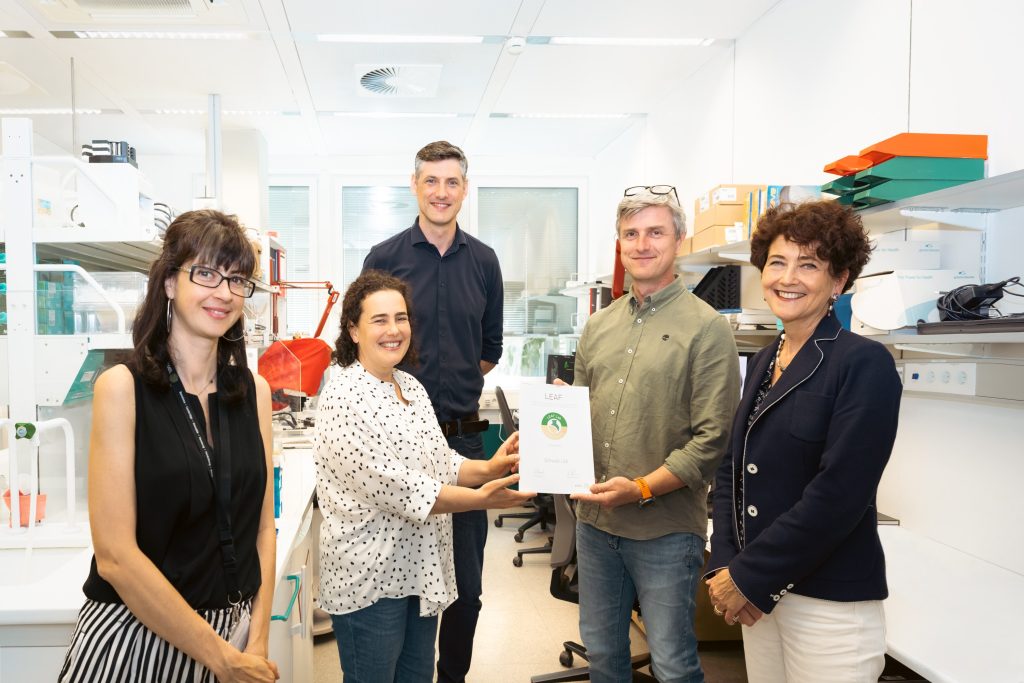Download the EMBL Green Lab Guide
Hints and tips to green your lab
Transitioning to a sustainable organisation
Sustainability at EMBL reduces our environmental impact, finds solutions to the major global challenges and promotes sustainable science.
Life science laboratories use a lot of energy, generate a lot of waste and consume large amounts of water.
EMBL will not be able to achieve its sustainability transition without embracing ‘green lab’ behaviours. This is a partnership between scientists and the organisation which must enable these behaviours and provide the necessary facilities.
On this page you will find out how we are supporting our scientists to work more sustainably.
Hints and tips to green your lab
Collaboration and input from scientists is key to achieve a more sustainable research model. We try to facilitate this bottom-up approach by providing the necessary tools to make this possible.
Marta Rodríguez-Martínez, Sustainability Officer
At EMBL, we are using the laboratory Efficiency Assessment Framework (LEAF) to monitor the sustainability of research groups across our sites. By joining the LEAF programme, EMBL laboratories are reducing their carbon footprint and creating an environment that supports research quality.
LEAF has been specifically developed for wet labs and sets out 56 criteria for research groups to achieve. The framework has categories on waste, people, sample and chemical management, equipment and ventilation. Research groups are awarded a bronze, silver and gold certificate as they complete the criteria.
